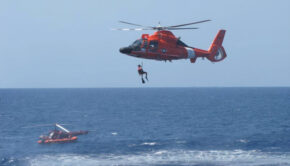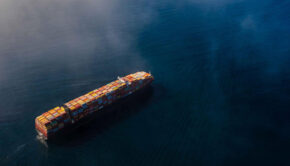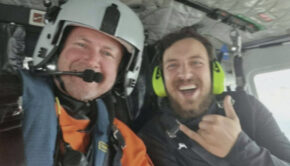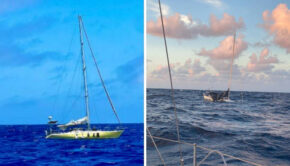Coordinating the standards of safety
Published on December 20th, 2018
Mark Lenci is a member of the Newport Bermuda Race organizing committee responsible for Safety at Sea training, a member of the Cruising Club of America (CCA) that runs CCA’s Safety at Sea training program, and is on the US Sailing National Faculty with a focus on Safety at Sea training. In this report he offers an update:
Over the last two years, the organizers of major US based offshore races have been in contact with each other with the goal of having similar requirements for safety training in order to help insure safe races, insure safety training for one race was valid for the other races, and make it easier for racers to understand the requirements.
We can say that generally these races such as Newport Bermuda Race, Marion Bermuda Race, Marblehead Halifax Race, Pac Cup, etc. have all moved to requiring 30% (or more) of a crew including the captain must have completed the US Sailing sanctioned two day (or one day online and one day hands-on) “International Offshore Safety at Sea with hands-on training” course.
This requirement is in place for the 2019 Marion Bermuda Race and Marblehead Halifax Race as well as for the 2020 Newport Bermuda Race.
For the Newport Bermuda Race, we started phasing in the requirement for the hands-on training course with the 2018 edition. Our requirement for two people with the hands-on training on each boat, along with increasing general interest in the hands-on training course among both cruisers and racers, resulted in filling all the available courses in the spring of 2018 on the East Coast to capacity.
As a result, the CCA has moved from giving a hands-on course once every two years to providing the course three to four times every year (approximately every three months) in order to provide more capacity and schedule flexibility for racers and cruisers.
The courses given thus far have filled up so this appears to be well received. The CCA, Storm Trysail Foundation, and others are working closely with US Sailing and investing to continue to improve the Online Offshore Safety at Sea course.
This online course is a key part of program. It is excellent training, can be done at home at the student’s pace, reduces the cost and time for the complete training, and gives the student schedule flexibility.
The first Newport Bermuda Race in 1906 was an act of rebellion to prove that amateurs with boats under 80 feet could safely do an open ocean race. Critics predicted disaster. But it was very successful and has developed into what we have today. Through coordination and standardization, our entire sport can gain from this rising tide.









 We’ll keep your information safe.
We’ll keep your information safe.